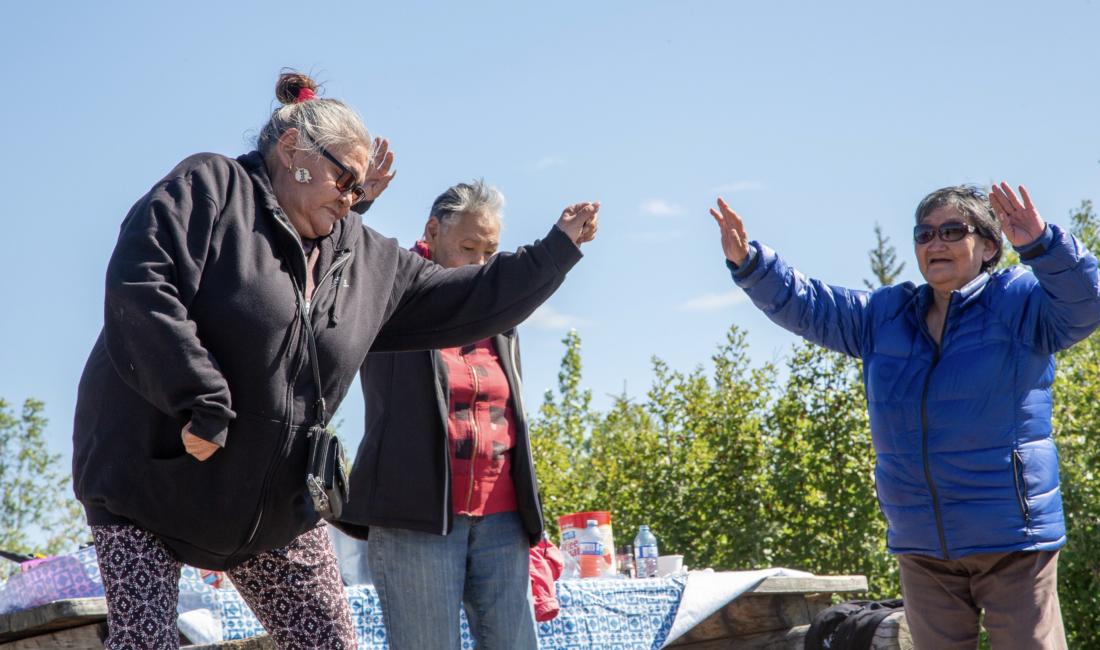
Modern Culture
Much has changed since the beginning, but Inuvialuit values remain the same. These values are at the foundation of the cultural resiliency that has allowed people to survive the turbulence of the past few centuries and maintain their Inuvialuit identity and strengthen their communities.
We have a high regard for certain characteristics and for certain types of individuals. We value curiosity, resourcefulness, patience, kindness and ability. We appreciate individuals who are successful at whatever they do, who are responsible, who keep their word and who are modest. These are attitudes which have not changed despite changes in all else around us.
Inuvialuit Pitqusiit: The Culture of the Inuvialuit, 1991, p.83
Inuvialuit today, as in the past, draw strength from their cultural traditions and from their ties to the land. Although many Inuvialuit work in the communities, the pull of the land is always strong. “I’m going to the bush” or “I’m going out on the land” are commonly heard phrases.
Camps – whether they be bush, fish or whaling – dot Victoria Island, Banks Island and the Beaufort Delta landscape. Some of these are close to the communities to provide a quick weekend getaway by skidoo, boat or ATV. Others are located further and are utilized for extended visits.
Environmental knowledge and survival skills continue to be important elements of modern Inuvialuit culture. Importantly, part of the local diet is from the harvesting of local fish and wildlife; Inuvialuit look forward to the changing seasons. Geese and muskox are hunted in the spring and fall, whaling and fishing take place in the summer and caribou hunting occurs in the fall and winter.
The long summer days provide ample opportunities for Inuvialuit to prepare for the winter. Communities appear deserted when residents move out to their whaling and fishing camps. Those from Aktlarvik (Aklavik) may be found at the traditional whaling camps at Shingle Point on the Yukon coast, while those from Tuktuuyaqtuuq (Tuktoyaktuk) and Inuuvik (Inuvik) are generally found at Kendall Island and Whitefish Station. Residents of Paulatuk usually gather at Egg Island in Argo Bay, Johnny Green Bay or Tusugiok. While Ikaahuk (Sachs Harbour) and Ulukhaktuuq (Ulukhaktok) residents enjoy camps along the coast at Kityipvik, Angniyalik and Mangmaktukvik to name a few.
Inuvialuit leaders, elders and youth are unanimous in recognizing that building on the traditions of the past is essential for success today and in the future.